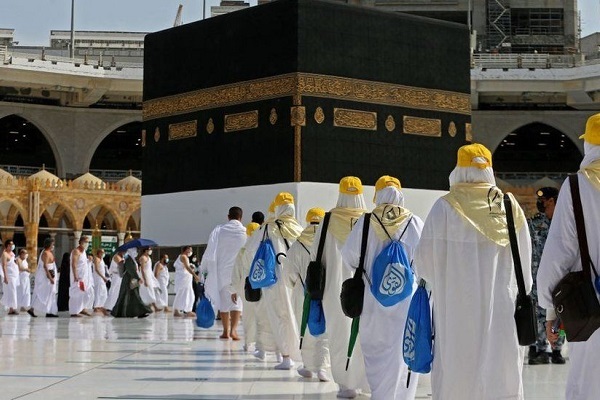Health Tips for Hajj Pilgrimage

In 2019, before the COVID-19 pandemic hit the world, some 2.5 million pilgrims participated in Hajj. In 2020, to avoid the spread of the virus, the Saudi government restricted Hajj to residents in Saudi Arabia.
With COVID-related restrictions relaxed, the Saudi Minister of Hajj and Umrah Tawfiq bin Fawzan Al-Rabiah said in January that the Kingdom is set to receive 2 million pilgrims during Hajj season this year, up from 900,000 last year.
All Muslims, who are physically and financially capable, are required to make the journey to Mecca once in a lifetime.
It is important to stay healthy and strong during the physically demanding journey. Taking certain safety precautions helps pilgrims to stay focused on worship.
However, such crowded gatherings usually present a risk for the rapid spread of infectious diseases such as COVID-19 which posed a great threat to public health across the world.
In addition to transmissible diseases, food poisoning and heat stroke are other health issues pilgrims may face during the journey.
Those who are older and have chronic diseases also need to be extra careful to avoid more serious health conditions.
That is why health organizations issue recommendations to prevent impacts on international public health in large annual mass gatherings in the world, including the Hajj pilgrimage.
Due to the adherence to the lunar calendar, hajj seasons vary. From 2005 to 2013 the pilgrimage fell in fall and winter when it could be associated with winter diseases and as the lunar calendar advanced it is now taking place in summer months when different diseases are dominant.
The Saudi Arabian government annually publishes official health requirements and regulations to prevent and control health threats during hajj.
It also includes a list of mandatory and recommended vaccinations such as meningococcal meningitis, COVID-19, polio, and MMR.
It says the pilgrims should try to stay fit and be more physically active 4 to 6 weeks prior to the journey as the pilgrimage can be strenuous and involves walking for kilometers.
Having a general check-up to ensure your good health is also recommended.
It instructs pilgrims with known health conditions to take their prescribed medication and have enough supplies for the trip.
To avoid accidents and injuries, it suggests wearing comfortable, protective footwear and taking extra care when walking alongside busy roads, or close to heavy traffic.
Saudi Arabia has an arid climate. To avoid climate-related health risks such as sunburn, sunstroke, heat exhaustion, heat stroke, and dehydration, pilgrims are recommended to take necessary precautions.
Using sunscreens, drinking plenty of water, and performing some rituals in the evening to avoid high daytime temperatures are helpful.
Good respiratory and hand hygiene will reduce your risk of catching and spreading respiratory infections like the flu and COVID-19, it added.
To avoid contracting diarrhea, the recommendation said you need to keep away from contaminated food and drinks and keep washing your hands frequently, especially before eating and drinking.
Protect yourself from being bitten by mosquitoes and other insects, as they can spread diseases such as dengue fever and malaria, it said.
When you return home, the recommendations suggest that you check for any symptoms especially those associated with respiratory infection to receive early treatment.
Being mindful of your health during this incredible journey would help you to deeply enjoy the meaningful experience.
By Maryam Qarehgozlou



